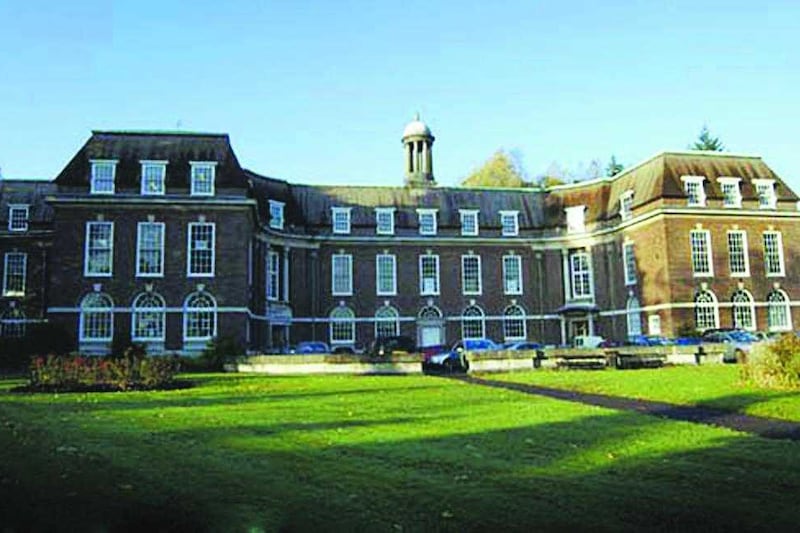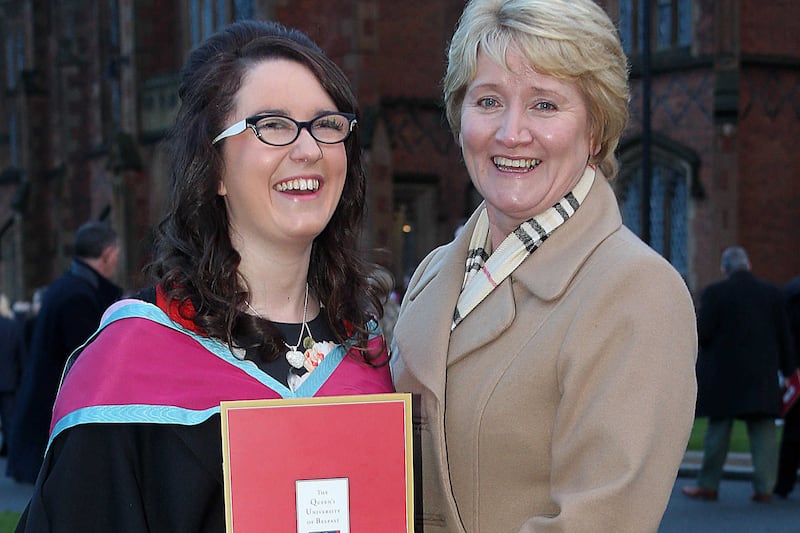AS head of Open College Network (OCN) Northern Ireland, Martin Flynn isn't your stereotypical chief executive.
Its stated mission is to advance education by developing and awarding qualifications which engage, enrich and equip learners for life.
Under Martin's leadership, OCN, which is a registered charity, has grown to be the leading awarding body in the north, overseeing more than 30,000 qualifications every year.
To put this in context, that's more than multi-million pound organisations like City & Guilds and Pearson.
Yet Martin (45) actually left school with minimal qualifications, earning a handful of GCSEs before quitting La Salle halfway through his A-Levels.
“After that first year, I thought it wasn't for me and couldn't be bothered any more,” he says.
So given his role today as such a prominent educational overseer, you could be forgiven for thinking there might be a slight whiff of imposter syndrome around Martin.
Not a bit of it, because he is a shining beacon of lifelong learning, having undergone his own self-initiated education journey focused on personal development.
“I became a sponge when it came to learning. I just pushed and pushed, always wanting to learn more,” Martin said.
“After leaving school I started applying for jobs, often menial admin roles, but quickly realised there would be no career progression.
“Then 1998 I applied for an administration position at OCN, and that's where it all changed.
“The business then was a team of five, based in the old Art College. I was the only male. My job basically involved registering students and posting out certificates to a couple of hundred people.
“But its then-chief executive Annie Moore seen something in me and said she'd fund me to go back and further my education. OCN couldn't afford to let me go on day release, so I had to do it three evenings a week for two years at Belfast Met.
“At that stage I got my real thirst for learning, realising that if I was to progress in my life and my career, I needed to further my education.
“So I kept on hounding my boss, asking her to pay for me to go back and do a degree, which she did.”
As Martin amassed certificates, diplomas and degrees (from Liverpool and Dundee Universities), promotions within OCN followed, first to a supervisory role, management, then a stint acting up as CEO, before ultimately being elevated into the chief executive's chair in June 2015.
He's just marked 25 years at OCN - and Martin says he's been learning every single minute of his time there.
“It true that every day's a school day,” he quips.
When Martin became CEO, turnover at OCN was around £500,000 a year. It's now £3 million, and in terms of increasing the scalability of the organisation, he now oversees 36 staff and 150 associates.”
So, what are Martin's thoughts on employees without degrees and what they can bring to a workplace?
He absolutely sits on the fence.
“Not having a formal degree doesn't mean people have stopped learning. Many actively pursue self-education, attend workshops, online courses, or engage in various forms of professional development to keep up with industry trends and advancements,” he says.
“Young people leaving full-time education today are like to have 50-year careers, meaning they will need to retrain and update their skills on a regular basis.”
Yet worryingly, more than a third (34 per cent) of adults in Northern Ireland say they have not taken part in any further learning since leaving full-time education. That's way higher than Scotland (24 per cent), Wales (21 per cent) and England (18 per cent).
“We can't afford to slip further behind other nations and regions when it comes to the skills of our people,” Martin says.
“Qualifications do give you a currency. That's whether you decide to go on to do a full degree, or embark on a short sharp piece of learning over a few weeks on a specific subject which will benefit you in your current position or enhance your chance of a getting a job elsewhere.”
Martin adds: “Of course formal education is hugely beneficial. But it is not the sole determinant of a person's abilities or potential for success, because employees without degrees can bring a range of valuable qualities, skills and diverse perspectives to the workplace.
“People who haven't followed traditional educational paths often have unique life experiences and viewpoints, which can lead to innovative ideas, problem-solving approaches and creative thinking in a workforce.”
He adds: “Degree or no degree, in this present day there is no such thing as a career for life. It's vital for people to reskill and adapt.”
Martin never believed he become chief executive of an organisation, let alone be in a position to undertake a three-year strategic plan to revise its corporate vision, mission and values.
“It mightn't have happened while I was wearing a school uniform, but I can confidently say I've continued to learn throughout my career,” he adds.







